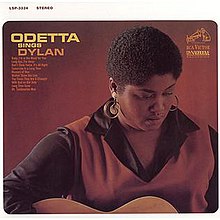Folk rock is a fusion genre of rock music with heavy influences from pop, English and American folk music. It typically combines elements of folk and rock music together, it arose in the United States, Canada, and the United Kingdom in the mid-1960s. In the U.S., folk rock emerged from the folk music revival. Performers such as Bob Dylan and the Byrds—several of whose members had earlier played in folk ensembles—attempted to blend the sounds of rock with their pre-existing folk repertoire, adopting the use of electric instrumentation and drums in a way previously discouraged in the U.S. folk community. The term "folk rock" was initially used in the U.S. music press in June 1965 to describe the Byrds' music.

"Mr. Tambourine Man" is a song written by Bob Dylan, released as the first track of the acoustic side of his March 1965 album Bringing It All Back Home. The song's popularity led to Dylan recording it live many times, and it has been included in multiple compilation albums. It has been translated into other languages and has been used or referenced in television shows, films, and books.
"Chimes of Freedom" is a song written and performed by Bob Dylan and featured on his Tom Wilson produced 1964 album Another Side of Bob Dylan. The song depicts the thoughts and feelings of the singer and his companion as they shelter from a lightning storm under a doorway after sunset. The singer expresses his solidarity with the downtrodden and oppressed, believing that the thunder is tolling in sympathy for them.
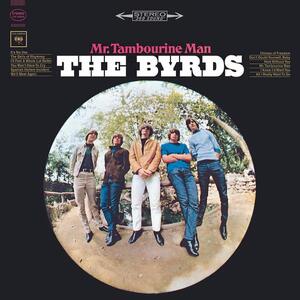
Mr. Tambourine Man is the debut studio album by the American rock band the Byrds, released on June 21, 1965, by Columbia Records. The album is characterized by the Byrds' signature sound of Jim McGuinn's 12-string Rickenbacker guitar and the band's complex harmony singing. The material on the album mostly consists of cover versions of folk songs, primarily composed by Bob Dylan, and originals written or co-written by singer Gene Clark. Along with the Dylan-penned single of the same name, Mr. Tambourine Man established the band as an internationally successful act and is widely regarded by critics as representing the first effective American challenge to the chart dominance of the Beatles and other British Invasion bands during the mid-1960s.

Bob Dylan's Greatest Hits is a 1967 compilation album of songs by the American singer-songwriter Bob Dylan. Released on March 27, 1967, by Columbia Records, it was a stopgap between Dylan's studio albums Blonde on Blonde and John Wesley Harding, during which time he had retreated from the public eye to recover from a motorcycle accident.
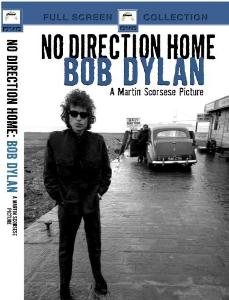
No Direction Home: Bob Dylan is a 2005 documentary film by Martin Scorsese that traces the life of Bob Dylan, and his impact on 20th-century American popular music and culture. The film focuses on the period between Dylan's arrival in New York in January 1961 and his "retirement" from touring following his motorcycle accident in July 1966. This period encapsulates Dylan's rise to fame as a folk singer and songwriter where he became the center of a cultural and musical upheaval, and continues through the electric controversy surrounding his move to a rock style of music.
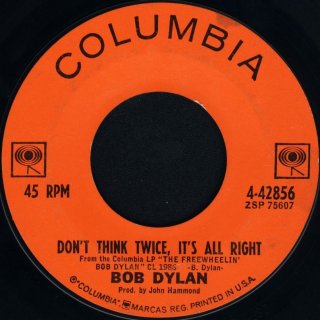
"Don't Think Twice, It's All Right" is a song written by Bob Dylan in 1962 and released the following year on his album The Freewheelin' Bob Dylan and as the B-side of the single "Blowin' in the Wind". The song has been covered by several other artists, including Waylon Jennings in 1964, Susan Tedeschi, Emilie-Claire Barlow in her 2010 album The Beat Goes On and Peter, Paul and Mary, who released it as a single, which reached the Top 10 of the Billboard Hot 100.
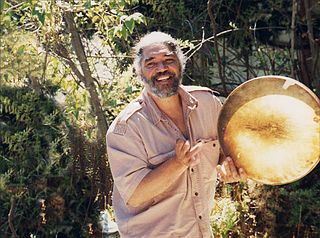
Bruce Langhorne was an American folk musician. He was active in the Greenwich Village folk scene in the 1960s, primarily as a session guitarist for folk albums and performances.

"The Times They Are a-Changin'" is a song written by Bob Dylan and released as the title track of his 1964 album of the same name. Dylan wrote the song as a deliberate attempt to create an anthem of change for the time, influenced by Irish and Scottish ballads. Released as a 45-rpm single in Britain in 1965, it reached number 9 on the UK Singles Chart. The song was not released as a single in the US. In 2019 it was certified Silver by BPI.
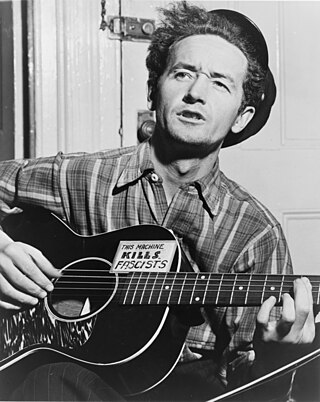
The American folk music revival began during the 1940s and peaked in popularity in the mid-1960s. Its roots went earlier, and performers like Josh White, Burl Ives, Woody Guthrie, Lead Belly, Big Bill Broonzy, Richard Dyer-Bennet, Oscar Brand, Jean Ritchie, John Jacob Niles, Susan Reed, Paul Robeson, Bessie Smith, Ma Rainey and Cisco Houston had enjoyed a limited general popularity in the 1930s and 1940s. The revival brought forward styles of American folk music that had in earlier times contributed to the development of country and western, blues, jazz, and rock and roll music.

By 1965, Bob Dylan was the leading songwriter of the American folk music revival. That year, he began recording and performing with electric instruments, generating controversy in the folk music community.
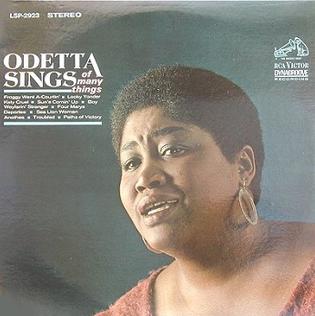
Odetta Sings of Many Things is an album by American folk singer Odetta, issued by RCA Victor in 1964.

Odetta Sings Folk Songs is a studio album by American folk singer Odetta, released on the RCA Victor label in September 1963. The album peaked at number 75 on the Billboard Pop Albums charts.

Odetta in Japan is a live album by American folk singer Odetta, released in 1965. It was her final album for RCA Victor.

Masters of War is the eighth and final studio album by American hard rock band Mountain, released in 2007. The album consists entirely of Bob Dylan covers.

Hollies Sing Dylan is a 1969 cover album featuring songs written by Bob Dylan and performed by the Hollies. It is their eighth UK album. It was also released in the US as Words and Music by Bob Dylan with a different cover but using the same band image and track order. First released on compact disc in West Germany in the late 1980s, it was not released in that format in the rest of Europe until 1993. For this issue, two bonus tracks, the single version of "Blowin' in the Wind" and a live version of "The Times They Are a-Changin'". A later remastered issue in 1999 added a third bonus track, a live version of "Blowin' in the Wind".
Gil Turner was an American folk singer-songwriter, magazine editor, Shakespearean actor, political activist, and for a time, a lay Baptist preacher. Turner was a prominent figure in the Greenwich Village scene of the early 1960s, where he was master of ceremonies at New York City's leading folk music venue, Gerde's Folk City, as well as co-editor of the protest song magazine Broadside. He also wrote for Sing Out!, the quarterly folk music journal.
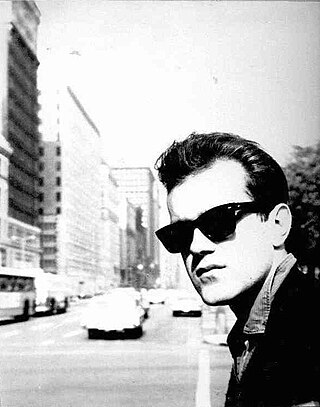
Richard S. Campbell, was a US folk rock singer-songwriter and film producer. He is best known for his 1966 album Dick Campbell Sings Where It's At, rated as "the sole masterpiece of the fake-Dylan field"

A World of Our Own is the fourth studio album by the Australian group The Seekers. The album was released in 1965. In some countries, the album was titled The Seekers. The album peaked at number 123 in the Billboard 200 and number 5 in the United Kingdom.
